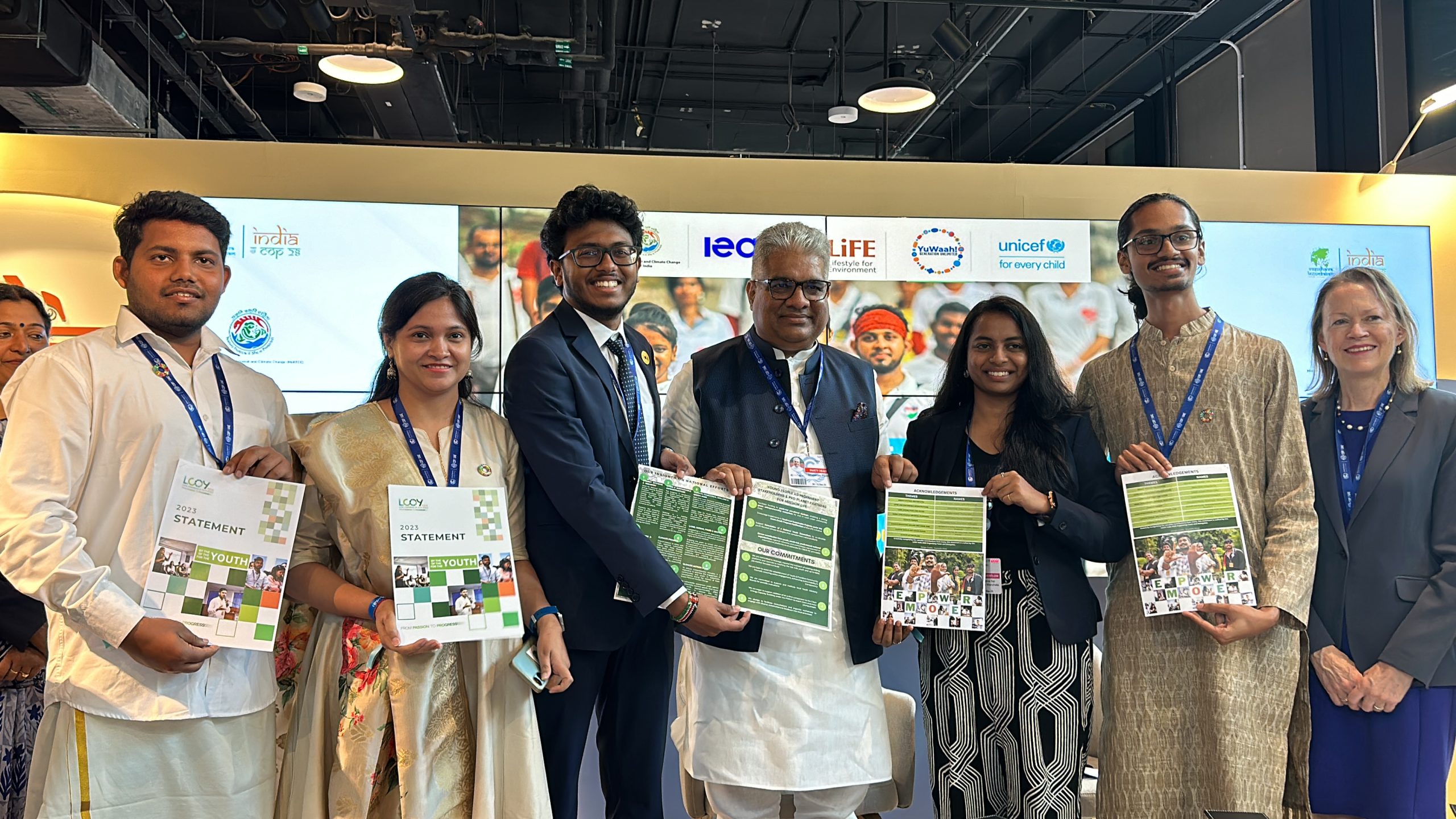As the global community grapples with the pressing need to address climate change, India assumes a leading role in empowering its youth to spearhead sustainable solutions. The “Youth Actions on Lifestyle for Environment (LiFE)” event at COP28’s India Pavilion today emphasized the pivotal role of young individuals in adopting eco-friendly lifestyles to combat climate change.
The event was cohosted by the Ministry of Environment, Forest and Climate Change (MoEFCC), UNICEF and the International Energy Agency; the event brought together key stakeholders, including government officials, international organizations, and youth representatives. The Mission LiFE initiative, initiated at COP26, has gained momentum in India, with the government’s unwavering commitment to promoting sustainable practices among the younger generation.
Speaking at the event, Union Minister of Environment Forest and Climate Change Bhupender Yadav emphasized the need for urgent climate action at COP28. He highlighted the interconnectedness of technology and environmental consciousness, stressing the vital role of youth in sustainable solutions. The Minister urged a paradigm shift towards mindful resource utilization and introduced the “Mission Life” initiative, aiming to reduce global CO2 emissions by 2 billion tons. Expressing satisfaction with the National Youth Statement developed by over 130 Indian youth from 25 states, Minister Yadav commended their contribution to the Global Youth Statement presented at the Youth Climate Championship. He acknowledged collaborations with the International Energy Agency and UNICEF, thanking four young climate leaders for their outstanding efforts in environmental sustainability.
The International Energy Agency (IEA) acknowledged India’s efforts, culminating in a report titled “LiFE Lessons from India.” The report showcased India’s integration of LiFE initiative policies into its energy transition strategy, highlighting the potential for behavioral change and consumption choices to drive global energy transitions. Mary Burce Warlick, Deputy Executive Director, IEA said that the IEA’s analysis indicated the potential for substantial generational reductions in CO2 emissions, stressing the urgency of greater climate action. The global adoption of LiFE measures could annually reduce global CO2 emissions by over 2 billion tonnes (Gt) and save approximately USD 440 billion by 2030.
George Laryea-Adjei, Director of Programs, UNICEF commented that Representatives from around the world showcased innovative sustainable lifestyles, especially in the context of young people being more exposed to climate change impacts than their parents. The Government of India’s “In Our LiFEtime” campaign actively involving young people in climate discussions was commended.
India’s “In Our LiFEtime” campaign, introduced during COP27, invited global youth to submit climate action ideas aligning with sustainable and scalable lifestyles. The success of this campaign led to the development of the Meri LiFE app, encouraging young people to make pro-planet choices in their daily lives. The app promotes mindful resource utilization and discourages wasteful consumption. This initiative, backed by a diverse network of public, private, and youth stakeholders, aims to achieve concrete environmental impact at the community level and catalyze systemic change.














